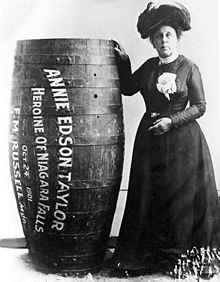Bottom Line First
Much as I hate to admit it, I think the Tigers will beat the Giants despite-
The Inherent Senior League Advantage
With all the great players playing ball right now, how well do you think you would do against today’s pitchers?
Well, I figure against today’s pitchers I’d only probably hit about .290.
.290? Well that’s amazing, because you batted over .400 a… a whole bunch of times. Now tell us all, we’d all like to know, why do you think you’d only hit .290?
Well, I’m 72 fucking years old you ignorant son of a bitch.
Now I’m over 120 years old (mid 30s in 1923, do the math) so I got to see Ty Cobb play and “sadistic, slashing, swashbuckling despot who waged war in the guise of sport” is the way he described himself (I also agree with Al Stump about the less redeeming aspects of his character, revisionists are simply using contrarian posing and novelty to peddle their publications when they are not being willfully disingenuous to advance an agenda).
Back in the day (before 1973 so not all that long ago) there was no such thing as a ‘Designated Hitter’. Strategically the very best things that can be said about it are that it eats up a roster position better used for a younger and more talented player to extend the career of a popular has been, and that it ‘saves’ your highly paid prima donna pitchers from the indignity of batting practice and injury.
Tactically it means that in any game you play in a Senior League Stadium you-
a) Have to bat a Pitcher for a likely out due to sheer lack of practice if nothing else (and still expose him to injury).
b) Have to field a player who, if he was any good at all any more, would still have a real job instead of riding the bench because he’s too hopelessly unco-ordinated and clumsy even for right field.
So you’re effectively ruining 2 positions out of the 9 in your line up, a 22% waste.
Does this ever work to your advantage? No. A Senior League Manager can point at any random player on his bench and reasonably expect him to be a better batter than his Pitcher (though not always, Babe Ruth could hit too). Problem solved!
“ek,” you say, “why then are you picking the Junior League to win?”
Rotation, rotation, rotation
Are you getting dizzy yet?
Not that these couldn’t change mind you, but this is the way the match ups are setting up–
|
Tigers |
Giants |
|
|
|
| Wednesday |
Verlander (17 – 8, 2.64 ERA) |
Zito (15 – 8, 4.15 ERA) |
| Thursday |
Fister (10 – 10, 3.45 ERA) |
Bumgarner (16 – 11, 3.37 ERA) |
|
|
|
|
|
|
| Saturday |
Sanchez (4 – 6, 3.74 ERA) |
Vogelsong (14 – 9, 3.37 ERA) |
| Sunday |
Scherzer (6 – 7, 3.74 ERA) |
Cain (16 – 5, 2.79 ERA) |
| *Monday |
Verlander (17 – 8, 2.64 ERA) |
Zito (15 – 8, 4.15 ERA) |
|
|
|
|
|
|
| *Wednesday |
Fister (10 – 10, 3.45 ERA) |
Bumgarner (16 – 11, 3.37 ERA) |
| *Thursday |
Verlander? (17 – 8, 2.64 ERA) |
Vogelsong (14 – 9, 3.37 ERA) |
* == if needed.
I would pitch Verlander on 4 days rest, theoretically he could go 3 for a critical game. He’s been throwing 130 pitch 8 inning outings in the post season and the man is an unstoppable winning machine. The Giants have no one that even compares (spare me the whining about Cain, he’s looked good the last 2 games but was distinctly ordinary before that).
Bumgarner has been hopeless and there is no reason to expect a change. Vogelson is probably a Giants victory. Scherzer beats Cain twice on Sundays.
My natural sympathies are with the Seniors. There is nothing unworthy about the Giants, you can find reasons they should win, but on paper the Tigers are superior and superior enough that they should be able to overcome their disadvantages. Cabrera could start hitting like a Triple Crown winner for example.
So now I’m committed on paper. Enjoy the World Series.
All games played on Faux.

 Despite the anger that the American public felt towards the United Kingdom after the British Parliament established the Coercive Acts, called the
Despite the anger that the American public felt towards the United Kingdom after the British Parliament established the Coercive Acts, called the  Desiring to secure her later years financially, she decided she would be the
Desiring to secure her later years financially, she decided she would be the
Recent Comments